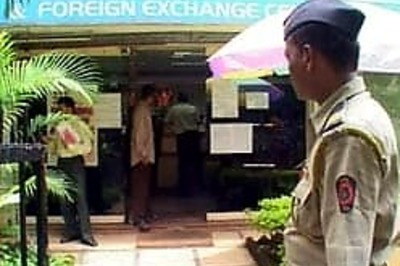
views
New Delhi: The Delhi government is working out modalities to ramp up RT-PCR testing in the national capital, officials said on Wednesday, a week after the high court had suggested increasing the capacity. The Delhi High Court had last week suggested that the AAP government increase the RT-PCR test capacity to the maximum possible to detect COVID-19 infection, as Rapid Antigen Tests (RATs) were only 60 per cent accurate.
Even after the high court’s suggestion, the number of RT-PCR tests has not shown an increase with the figures hovering around the 10,000 mark. The high court asked an expert committee, set by the Lieutenant Governor (LG), to convene a meeting on priority basis to consider the extent to which capacity of testing by RT-PCR should be ramped up.
The bench also noted that in the week from September 8-15, the testing done through RT-PCR was less than one-fourth of the total number of tests and rest was done by the RAT process. The national capital has a capacity of conducting 14,000 RT-PCR tests on a daily basis.
On September 17, the number of RT-PCR tests conducted stood at 9,564 while the next day, the figure was 11,203. The number of tests conducted on September 19, 20, 21, 22, 23 stood at 10,681, 11,322, 8828, 9,459 and 10,359. A government official, however, said, “The modalities for increasing the tests are being worked out and they will soon be finalised.” Dr BL Sherwal, medical director of Rajiv Gandhi Super Speciality Hospital, said that the tests are conducted for symptomatic patients and are happening as per protocol.
“The RT-PCR tests are conducted on symptomatic patients, according to the protocol. The test involves a lot of money and manpower. There is no delay on our part and there is no pendency of samples. There is no pile-up now. Places like ILBS, our hospital have upgraded their capacity. We are trying that reports should be given by the next day.” Nutan Mundeja, the head of the Directorate General of Health Services, had said, “The court has ordered to do it. We will abide by its directions. We could ramp up the testing with the help of rapid antigen tests, as it is a point of care testing and the logistics is simpler.” “We have been following the ICMR guidelines. RT-PCR tests are being conducted on those having symptoms. These tests are not prescribed for asymptomatic cases,” she said. Also, Delhi has started on-demand testing, wherein symptomatic patients do not need a doctor’s prescription to get themselves tested for coronavirus, Mundeja said.
Asked if RT-PCR machines being used for conducting other molecular tests can be diverted for COVID-19 testing, Mundeja said, “We have already diverted CB-NAAT machines meant for detecting tuberculosis. Every disease is equally important. And, other diseases are curable compared to COVID-19.” “If CB-NAAT is being used for tuberculosis diagnosis, ethically and professionally it should be used for TB rather than COVID-19, because TB is curable,” she said. “We will examine it (ramping up RT-PCR testing) and see what best we can do,” she said.
While CBNAAT and TrueNat machines test fewer samples in a cycle, the tests are faster than a traditional RT-PCR test and can be used by hospitals” emergency departments.
Disclaimer: This post has been auto-published from an agency feed without any modifications to the text and has not been reviewed by an editor




















Comments
0 comment